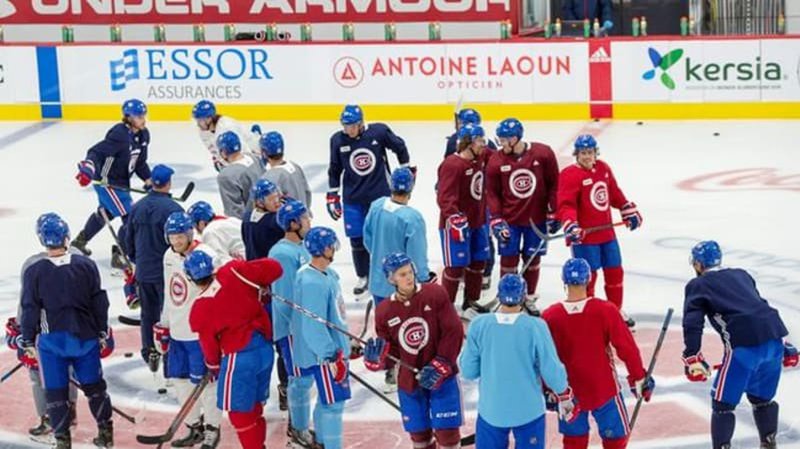
Bergevin doesn’t see downside to NHL return experience as club returns to ice
BROSSARD, Que. — Montreal Canadiens general manager Marc Bergevin abided by the code of silence imposed by the NHL, declining to comment on a report about potential positive COVID-19 cases on his club.
On Sunday night, The Athletic reported at least three players on the team had tested positive in recent days. On Monday, they reported via sources that two of the cases were false positives.
There were three players absent on the ice at the club’s suburban training facility: defencemen Josh Brook, Brett Kulak and Xavier Ouellet.
Asked about the report, Bergevin remained mum as training camp for all 24 teams in the NHL’s return started Monday.
